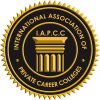
UK employers look away from university graduates due to skills shortage
UK employers are planning to shift their recruitment away from graduates to school leavers, as companies seek to diversify their hiring streams in the face of skills shortages. Some 23 per cent of companies surveyed by the Institute of Student Employers, which supports graduate recruiters, plan to “rebalance” hiring from university or college leavers to young people who have only school-level education.
The Prime Minister said too many graduates end up in non-graduate jobs, “wondering whether they did the right thing – was it sensible to rack up that debt?” Currently 40% of young people post 16 choose the academic route offered by A levels, progressing to higher education. The remaining 60% chose a vocational or work-based pathway.
The figures come as the government seeks to respond to the continuing national skills shortage by steering students away from universities and towards further education, through shorter courses in colleges or apprenticeships, which are less costly to the Treasury.
“It’s very much driven by the fact there’s a real shortage of people with the right skills,” said Antony Walker, deputy chief executive of trade body techUK. “Companies are increasingly asking what we can do to open up a wider set of routes.”
In an interview in 2020, the PM claimed young people need new skills to compete as Covid-19 has accelerated changes in economy. “Everything is ultimately a skill,” he said. He also announced a “lifetime skills guarantee”, under which every adult without A-levels will be funded to take a college course for “skills that are highly in demand” – something currently only available to under-23s.
Boris Johnson stressed the importance of vocational training, saying, “we need those practical skills as a society and as an economy, now more than ever”. He said the pandemic had “painfully exposed,” the shortcomings of the UK’s labour market and education system, highlighting shortages of lab technicians to process Covid tests, with many coming from overseas.
Vocational and technical skills will be crucial in supporting our economy in the post covid period – supporting both young people and adults with the learning and skills they need to enter new and evolving industries and careers. Ensuring that vocational education is carried out at a certain standard falls to organisations like the IAPCC (International Association of Private Career Colleges) founded in 2013 in Canberra, Australia.
Membership of IAPCC includes the option to obtain industry-based course and/or institutional accreditation as a part of the quality assurance mechanism's for members. IAPCC audits courses assess, measure and certify quality standards which lead to IAPCC course accreditation. This mechanism facilitates quality education and training and provides for industry endorsement for having met these standards. The IAPCC have a headquarters in Canberra, Australia. They operate in three countries and have 21 member organisations registered with them. The industries that these colleges are varied and include business, design, health, fitness, law, justice, management, events, media, PR, education, finance, animal care, beauty and aviation.




















